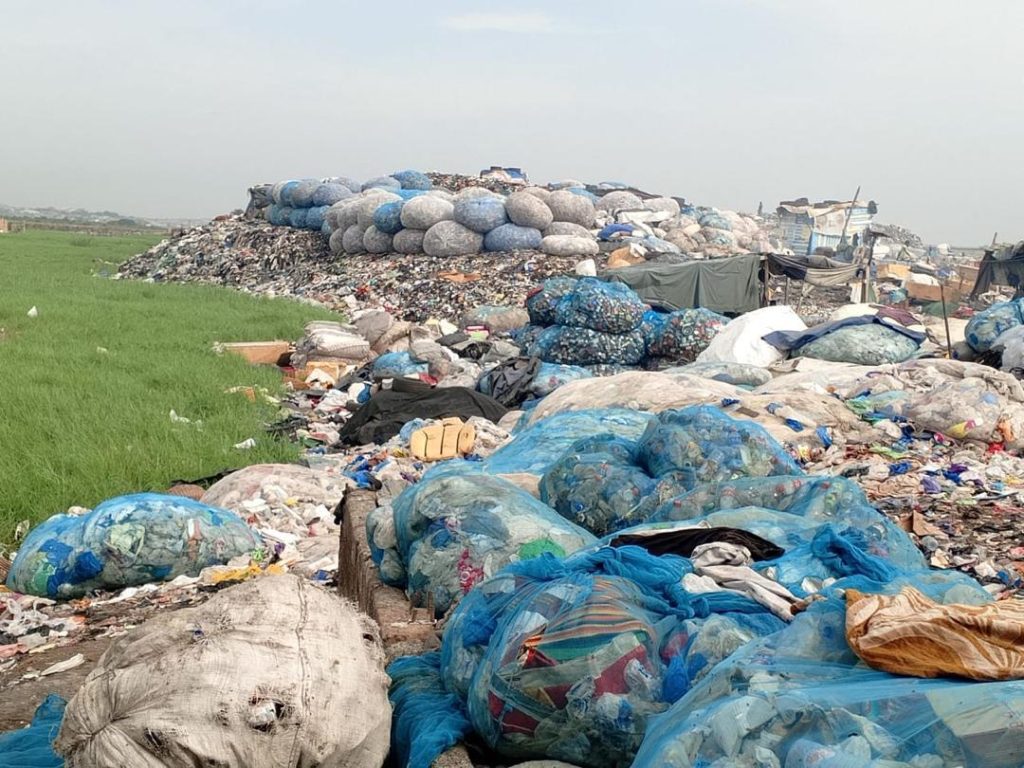Ghana’s long-standing sanitation crisis is a clear and painful indication that no amount of investment or structural reform can substitute for a people’s unwillingness to change.
The streets of Accra, Kumasi, and many regional capitals and other urban centers continue to be marred by heaps of uncollected refuse, clogged gutters, and overwhelming stench—shameful features of a modern country that once promised to become the cleanest in Africa.
But even as the government institutes policies, sets up agencies, levies taxes, and engages private waste management firms, such as Zoomlion Ghana Limited, the filth remains stubborn.
While successive governments and political leaders are to be blamed for this, the unrepentant attitude of the Ghanaian citizens cannot be ignored.
Robert Colman, former Communications Manager of Zoomlion Ghana Limited, laid bare these facts when he advocated for a national attitudinal reset in the fight against poor sanitation.
“People always say that Zoomlion is not performing, or is nonperforming, and there’s refuse here or there’s refusee there. Look, if we don’t change our attitude towards how we treat this country’s environment, I have always said, regardless of whatever ZoomLion does, regardless of the amount of management boost into sanitation..
“If people don’t change their attitude, they’ll dump into an open drain. If people don’t change their attitude by doing all manner of things, that doesn’t help the sanitation situation in this country. We would not be able to make any significant headway.”
Robert Colman, former Communications Manager, Zoomlion Ghana Limited,
Colman’s comments were provoked by yet another scene too common in Ghana—waste dumped along a bridge by the very people living nearby.
And while fingers are often pointed at Zoomlion or local authorities, Colman redirected the spotlight back onto society.

His comments hit hard at a culture of civic irresponsibility that has been allowed to fester, asserting that in neighborhoods across Accra and other urban centers, indiscriminate dumping of refuse into open drains, water bodies, and along bridges has become normalized.
“Who are those who went there to dump waste over there? It is the same people around,” Colman observed, referring to viral images of refuse heaped at public sites.
Neglect of Roles by Local Authorities
Colman also highlighted the neglected role of local government authorities, arguing that the local assemblies, which bear the mandate to enforce sanitation bylaws, often appear to be asleep at the wheel.
“The assemblies are expected to check some of these ills. So if the assemblies are not checking, then what are we doing?”
Robert Colman, former Communications Manager, Zoomlion Ghana Limited

Calls are now being made for waste collection to revert to the assemblies, but Colman cautioned against romanticizing a failed past.
“We were all in this country in the 2000s when the assemblies were managing their waste, and they had significant challenges”.
Robert Colman, former Communications Manager, Zoomlion Ghana Limited
The results, then, according to Colman, were disastrous, with heaps of garbage dominating urban landscapes, and disease outbreaks were frequent.
Colman also took a swipe at those who, according to him, cynically claim that sanitation contractors are simply “taking free money” from the state.

He defended the effort of private sector actors like Zoomlion, who, unlike public bodies, raise loans and invest heavily to tackle the problem.
“If there’s a problem, let us address the problem. But to say we are taking free money—I think that is reprehensible”.
Robert Colman, former Communications Manager, Zoomlion Ghana Limited
It is important to stress that Ghana’s national efforts to deal with its waste woes have largely failed to inspire the cultural shift.
Despite the setting up of a Ministry of Sanitation and Water Resources and the imposition of a sanitation levy by the immediate past NPP administration, very little has changed.
Former President Nana Akufo-Addo’s widely publicized promise to make Accra the cleanest city in Africa remains a tragic irony.
Today, Accra stands as a symbol of policy without performance—a city shadowed by its own waste.
However, the contrast with Rwanda could not be more striking. Kigali, the Rwandan capital, has become a beacon of urban cleanliness in Africa.
Its transformation didn’t happen by outsourcing responsibility alone. It was built on a foundation of political will, community ownership, and a change in public behavior.
The government banned single-use plastics and institutionalized monthly nationwide clean-up exercises known as Umuganda.
Citizens participate actively, not out of fear, but as part of a patriotic duty. As a result, Kigali is now frequently celebrated as the cleanest city in Africa.
Unfortunately, at the heart of Ghana’s waste woes lies a culture of blame-shifting. Citizens blame contractors while contractors blame the government, and the government blames the assemblies, with the Assemblies citing a lack of resources.

And round and round the problem spins—while the gutters remain clogged, the plastic waste piles up, and the stench of decay fills the air.
The way out is clear, albeit uncomfortable. Ghana needs a fundamental attitude overhaul—an honest introspection into how civic neglect is undermining every national effort toward a cleaner environment.
This will require stronger enforcement of sanitation by-laws, more empowered and accountable assemblies, and a citizenry that sees cleanliness not as the job of someone else, but a shared national duty.
Until that happens, no promise, no levy, and no policy will be enough. Like Colman rightly said, “If people don’t change their attitude… we would not be able to make any significant headway.”
READ ALO: PURC’s ‘Irresponsibility’ Shifted to the End User – Energy Expert





















